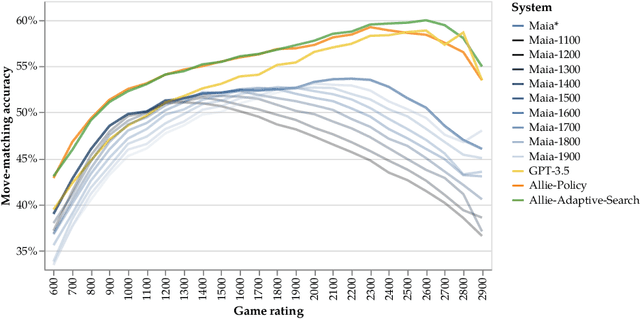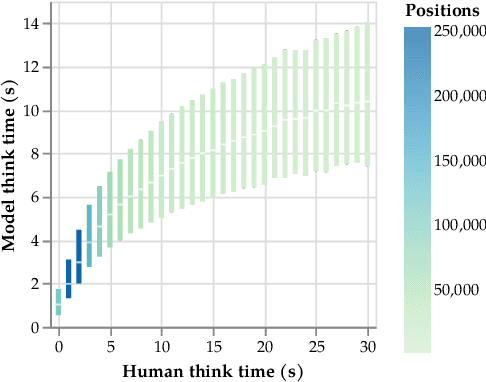Human-aligned Chess with a Bit of Search
Paper and Code
Oct 04, 2024



Chess has long been a testbed for AI's quest to match human intelligence, and in recent years, chess AI systems have surpassed the strongest humans at the game. However, these systems are not human-aligned; they are unable to match the skill levels of all human partners or model human-like behaviors beyond piece movement. In this paper, we introduce Allie, a chess-playing AI designed to bridge the gap between artificial and human intelligence in this classic game. Allie is trained on log sequences of real chess games to model the behaviors of human chess players across the skill spectrum, including non-move behaviors such as pondering times and resignations In offline evaluations, we find that Allie exhibits humanlike behavior: it outperforms the existing state-of-the-art in human chess move prediction and "ponders" at critical positions. The model learns to reliably assign reward at each game state, which can be used at inference as a reward function in a novel time-adaptive Monte-Carlo tree search (MCTS) procedure, where the amount of search depends on how long humans would think in the same positions. Adaptive search enables remarkable skill calibration; in a large-scale online evaluation against players with ratings from 1000 to 2600 Elo, our adaptive search method leads to a skill gap of only 49 Elo on average, substantially outperforming search-free and standard MCTS baselines. Against grandmaster-level (2500 Elo) opponents, Allie with adaptive search exhibits the strength of a fellow grandmaster, all while learning exclusively from humans.
 Add to Chrome
Add to Chrome Add to Firefox
Add to Firefox Add to Edge
Add to Edge